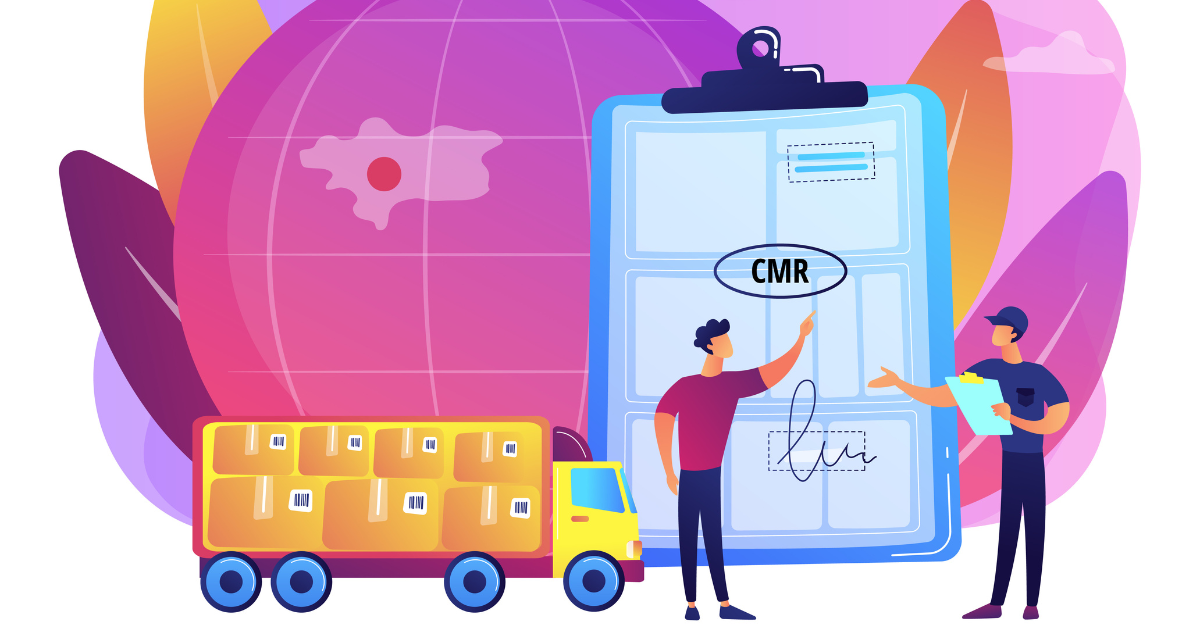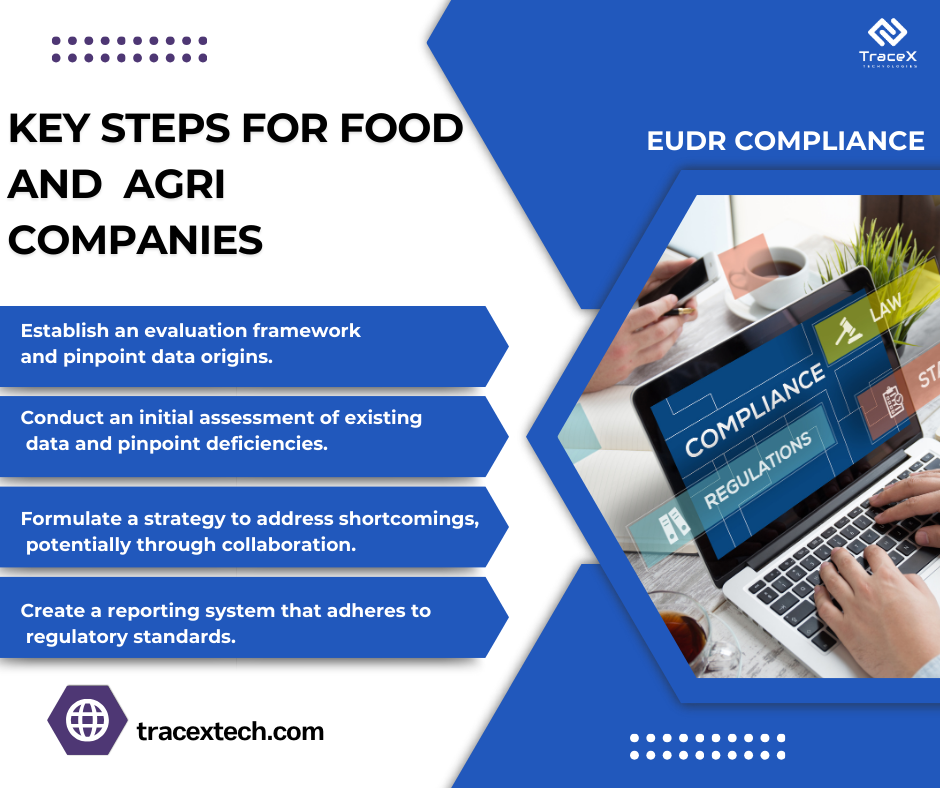Contact: +91 99725 24322 |
Menu
Menu
Quick summary: Explore the global impacts of the European Union Deforestation Regulation (EUDR) on the food and agriculture industry. Delve into the repercussions for key commodities, supply chains, and international trade dynamics. Stay informed about the transformative effects of EUDR on sustainability practices worldwide.

Starting December 2024, European consumers enjoying the Swiss chocolates or savoring Brazilian coffee can be confident that these products were sourced without deforestation, courtesy of the world’s most ambitious zero-deforestation trade legislation. The European Union Deforestation Regulation (EUDR) represents a monumental shift in the global food and agriculture industry, with far-reaching implications for stakeholders worldwide.
Designed to combat deforestation and promote sustainable sourcing practices, the EUDR mandates stringent requirements for businesses operating within the EU market. As the deadline for compliance approaches, companies around the globe are grappling with the profound implications of this regulation on their supply chains, operations, and bottom lines.
By addressing the environmental impact of deforestation related with agricultural commodities, the EU Deforestation Regulation (EUDR) has important ramifications for the food and agriculture business. For businesses operating in the food and agriculture sector, compliance with EUDR is crucial for accessing the EU market, reinforcing the growing global emphasis on sustainable and responsible supply chains.
The EU alone is responsible for importing products that account for approximately 13-16% of deforestation associated with global trade, resulting in 203,000 hectares of cleared forests and 116 million tonnes of CO₂ released into the atmosphere.
In this blog, we delve into the global implications of the EUDR in the food and agriculture industry, exploring its impacts, challenges, and opportunities for sustainable growth and responsible stewardship of our planet’s natural resources. Join us as we navigate the complexities of this regulatory landscape and uncover strategies for navigating the EUDR era effectively.
Understanding EUDR in the Context of Food and Agriculture:
The food and agriculture industries are impacted by a number of important rules included in the EU Deforestation Regulation (EUDR). It requires businesses to take appropriate precautions to stop deforestation in their supply chains, guaranteeing the sustainable production of goods like timber, palm oil, soy, and beef. Businesses are required by EUDR to identify and manage possible deforestation risks, ensuring transparency and traceability all the way through the supply chain. Businesses that don’t comply, risk having their ability to sell non-compliant goods in the EU . Thus, the legislation influences supply chain dynamics and promotes sustainability in the production of essential commodities by acting as a catalyst for the industry-wide adoption of environmentally responsible practices.
The EU Deforestation Regulation (EUDR), which addresses the environmental effects of deforestation linked to important commodities, is in line with sustainability goals in the food and agriculture sectors. EUDR ensures that products entering the EU market are produced in an environmentally responsible manner and encourages firms to adopt sustainable practices by implementing strict due diligence standards. The rule supports the larger sustainability goals of biodiversity preservation, climate change mitigation, and responsible resource management by encouraging openness, traceability, and accountability throughout supply chains. The EUDR’s emphasis on stopping deforestation is in line with international initiatives to develop more ethical and sustainable practices in the food and agriculture sectors, underscoring the significance of production that is ecologically conscientious.
The Global Impact on Food Supply Chains
EUDR impacts the world’s food supply systems by establishing stringent guidelines for the sustainability of important commodities. Since the EU is a large market, businesses from all over the world must abide by EUDR in order to access it. This causes a domino effect across international supply chains, forcing companies to produce goods like timber, soy, beef, and palm oil using sustainable and deforestation-free methods. As a result, the rule acts as a catalyst for the transformation of global food supply chains into more transparent and environmentally friendly operations, reflecting a growing commitment and global awareness of the need to combat deforestation and advance sustainability in the food and agriculture industries.
The European Union Deforestation Regulation (EUDR) imposes extensive reporting obligations on commodities and their subsequent supply chains. Encompassing €40.9 billion worth of commodity imports to the EU and €85.0 billion of derivative products, the EUDR sets forth comprehensive requirements for transparency and accountability.
The EUDR is expected to reshape trade dynamics and supply chains concerning commodities associated with deforestation in the coming decade. Its effects are anticipated to reverberate throughout key palm oil-producing nations in Asia, including Indonesia and Malaysia, as well as in the agribusiness sectors of countries like Brazil and Argentina. Furthermore, the regulation is poised to influence EU-bound cocoa exports originating from countries such as Côte d’Ivoire and Ghana.
Explore how innovative solutions are revolutionizing the cocoa industry while promoting transparency and ethical standards
Discover the journey of cocoa traceability in Africa and uncover the secrets behind sustainable sourcing practices.
Despite efforts by source-export countries to adapt, the challenges of tracing intricate supply chains and the associated costs are expected to escalate. This will incentivize companies importing EUDR-related products into the EU to shift towards jurisdictions with lower risk profiles. Additionally, entities that cannot meet the standards set by the EUDR are likely to explore alternative export markets.
Challenges Faced by Food and Agri Businesses
Businesses face specific challenges in complying with the EU Deforestation Regulation (EUDR).
In general, a paradigm shift in supply chain operations is anticipated as a result of the EUDR, with an emphasis on sustainability, transparency, and ethical sourcing methods across the food and agriculture sectors.
Traceability and Transparency Solutions
Transparency and traceability are essential elements in today’s industry, especially in industries like agriculture and food. The capacity to monitor and follow the flow of goods or materials along the supply chain is known as traceability.
It guarantees that companies are able to pinpoint the place of origin, manufacturing processes, and product distribution. Conversely, transparency entails disclosing this data in an open manner to stakeholders, customers, and government agencies. Traceability and transparency work together to promote sustainability and integrity by strengthening accountability, establishing confidence, and enabling prompt resolution of possible problems. These resources are essential for fulfilling changing customer expectations and preserving a competitive edge in markets, particularly in sectors like food and agriculture where ethical sourcing and sustainable methods are valued by customers.
The European Union has the chance to capitalize on the opportunities presented by Article 30 to revolutionize agricultural production and enhance transparency within the supply chain, ultimately eradicating deforestation.
Technological innovations are revolutionizing traceability in the food and agriculture sector. Blockchain technology, for instance, enables secure, transparent, and immutable record-keeping across the supply chain. This ensures that every step, from production to distribution, can be tracked with unprecedented accuracy. IoT (Internet of Things) devices play a vital role by collecting real-time data on environmental conditions, storage, and transportation, further enhancing traceability. RFID (Radio-Frequency Identification) tags and QR codes offer simple yet effective ways to link physical products to digital records, providing consumers and stakeholders with instant access to information about the product’s journey. These innovations not only improve efficiency but also empower businesses to meet the increasing demand for transparency and sustainability in the food and agriculture industry.
Legal and Regulatory Considerations in the Food and Agri Sector
Under the EU Deforestation Regulation (EUDR), legal aspects specific to the food and agriculture industry primarily revolve around the obligation for businesses to conduct due diligence on their supply chains. The regulation mandates companies to ensure that commodities like soy, beef, palm oil, and timber imported into the EU are produced in accordance with stringent environmental standards. Non-compliance may lead to restrictions on placing products in the EU market. The legal framework encourages transparency, traceability, and sustainable practices, placing responsibility on businesses to mitigate the risk of deforestation associated with their supply chains. It signifies a legal commitment to aligning the food and agriculture industry with broader environmental and sustainability objectives within the European Union.
Non-compliance with the EU Deforestation Regulation (EUDR) in the food and agriculture sector can result in significant penalties and consequences. Businesses failing to meet the regulation’s stringent standards may face restrictions on placing non-compliant products in the EU market. Penalties could include fines, market exclusion, or other regulatory measures. The legal framework underscores the seriousness of addressing deforestation risks in supply chains and emphasizes the importance of due diligence. As a result, the sector is compelled to adopt sustainable practices to avoid legal repercussions and maintain access to the lucrative EU market. EUDR’s penalties serve as a powerful incentive for businesses to align with the regulation’s environmental objectives and contribute to global sustainability goals.
The Role of TraceX in EUDR Compliance
TraceX blockchain traceability solutions offer a robust framework for companies to achieve compliance with the European Union Deforestation Regulation. By providing enhanced transparency, verification of sustainable sourcing practices, real-time monitoring, auditable documentation, and collaborative engagement, TraceX empowers companies to transform their supply chains and contribute to the elimination of deforestation.

In summary, the EU Deforestation Regulation (EUDR) forces companies to give sustainability and traceability in their supply chains first priority. It is a significant development for the food and agriculture industries. EUDR aims to curb deforestation linked to essential commodities by enforcing strict guidelines and requiring due diligence, thereby revolutionizing industrial processes. By improving traceability, technological advancements like blockchain and IoT are essential in easing compliance. The severe consequences for noncompliance highlight the legal obligation to protect the environment. In addition to bringing the industry into line with global environmental standards, EUDR also sparks a paradigm shift in favor of ethical and open business practices. The regulation offers the industry a chance to embrace innovation, strengthen the resilience of the supply chain, and contribute to a more sustainable future while firms negotiate the difficulties.
